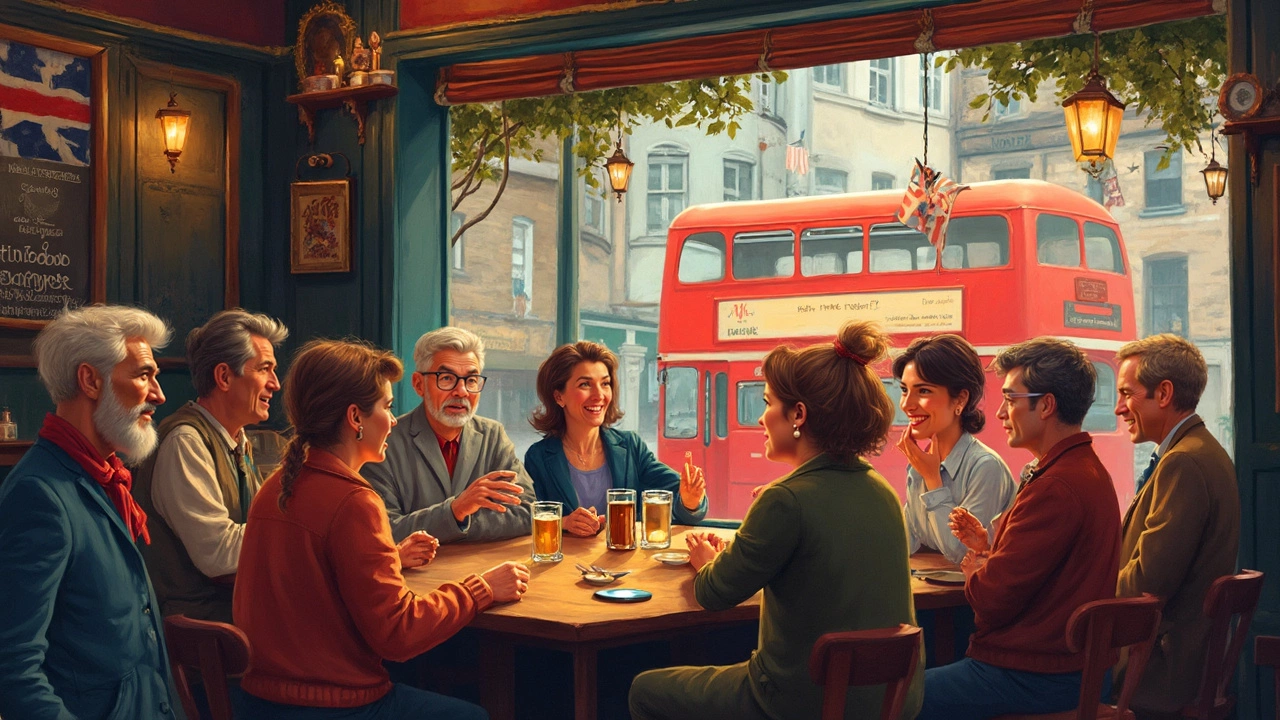British Phrases: Everyday UK Expressions You Need to Know
If you’ve ever been confused by a Brit’s quick "cheers" or wondered why they say "I'm knackered," you’re not alone. British phrases are tiny cultural clues that tell you a lot about how people think, joke and get things done. Knowing a few of them can turn a vague tourist experience into a genuine conversation.
Why British Phrases Matter
Even the simplest phrase can change the tone of a chat. Saying "spot on" shows you agree, while "take the mickey" signals you think someone is being teased. When you drop the right phrase, locals often smile and feel you’re making an effort. That small boost can lead to better recommendations, friendlier service, and a deeper feel for the place.
Top 10 Must‑Know British Phrases
1. Cheers – More than a toast, it’s a casual thank‑you. Use it when a barista hands you a coffee or a friend hands you a bag.
2. Brilliant – Means “great” or “awesome.” If a train arrives on time, you might hear, “That’s brilliant!”
3. Knackered – Tired beyond normal. After a long hike in the Lake District, a Brit could say, “I’m knackered.”
4. Fancy – Want or like. “Do you fancy a pint?” means “Would you like a drink?”
5. Pop‑in – Drop by briefly. “I’ll pop in later” suggests a quick, informal visit.
6. Take the mickey – Tease or mock. If someone jokes about your accent, they’re taking the mickey, not being rude.
7. Brolly – Umbrella. In a city known for rain, asking “Did you bring your brolly?” is common.
8. On the pull – Looking to meet someone romantically. If a mate says they’re on the pull, they’re out socialising.
9. Skint – Broke, no money. “I’m skint until payday” tells you they can’t spend much right now.
10. Spot on – Exactly right. When a guide nails a historical fact, you might hear, “That’s spot on.”
Try using these in real situations. Order a coffee and say, “Cheers!” when it’s handed over. If a friend suggests a hike, respond with “Sounds brilliant, I’m up for it.” The more you practice, the more natural it feels.
British phrases also vary by region. In the north, you’ll hear “aye” instead of “yes,” while in the south “lovely” pops up a lot. Listening closely helps you pick up these subtle shifts. Don’t be afraid to ask: “What does ‘gutted’ mean?” Most people love explaining and will appreciate your curiosity.
When you’re writing, keep the tone relaxed. British English usually avoids overly formal language in everyday chat. Short sentences, contractions (I’m, can’t) and a dash of humor work well. For example, instead of “I am extremely exhausted,” say “I’m knackered.”
Finally, remember that slang evolves. A phrase popular in 2020 could fade by 2025. Staying up‑to‑date means watching TV shows, listening to podcasts, or following social media trends. Shows like "Doctor Who" or podcasts like "The Guilty Feminist" sprinkle fresh slang into everyday speech.
With these basics, you’re ready to move beyond "Hello" and "Thank you" into the real heartbeat of British conversation. Use them, enjoy the reactions, and watch your UK travel experience become a lot richer."

Do British People Really Say “At the Weekend”? A Deep Dive into UK vs US English
Do Brits actually say "at the weekend," and why does it sound so odd to North Americans? This article explores how this small phrase sums up bigger UK vs US English differences, with real-life examples, cultural stories, and practical tips for travelers and language lovers. Learn which phrases to use where, discover surprising similarities, and get confident switching between dialects. Fans of language quirks and British culture will love these enlightening facts and fun tips for sounding local.
